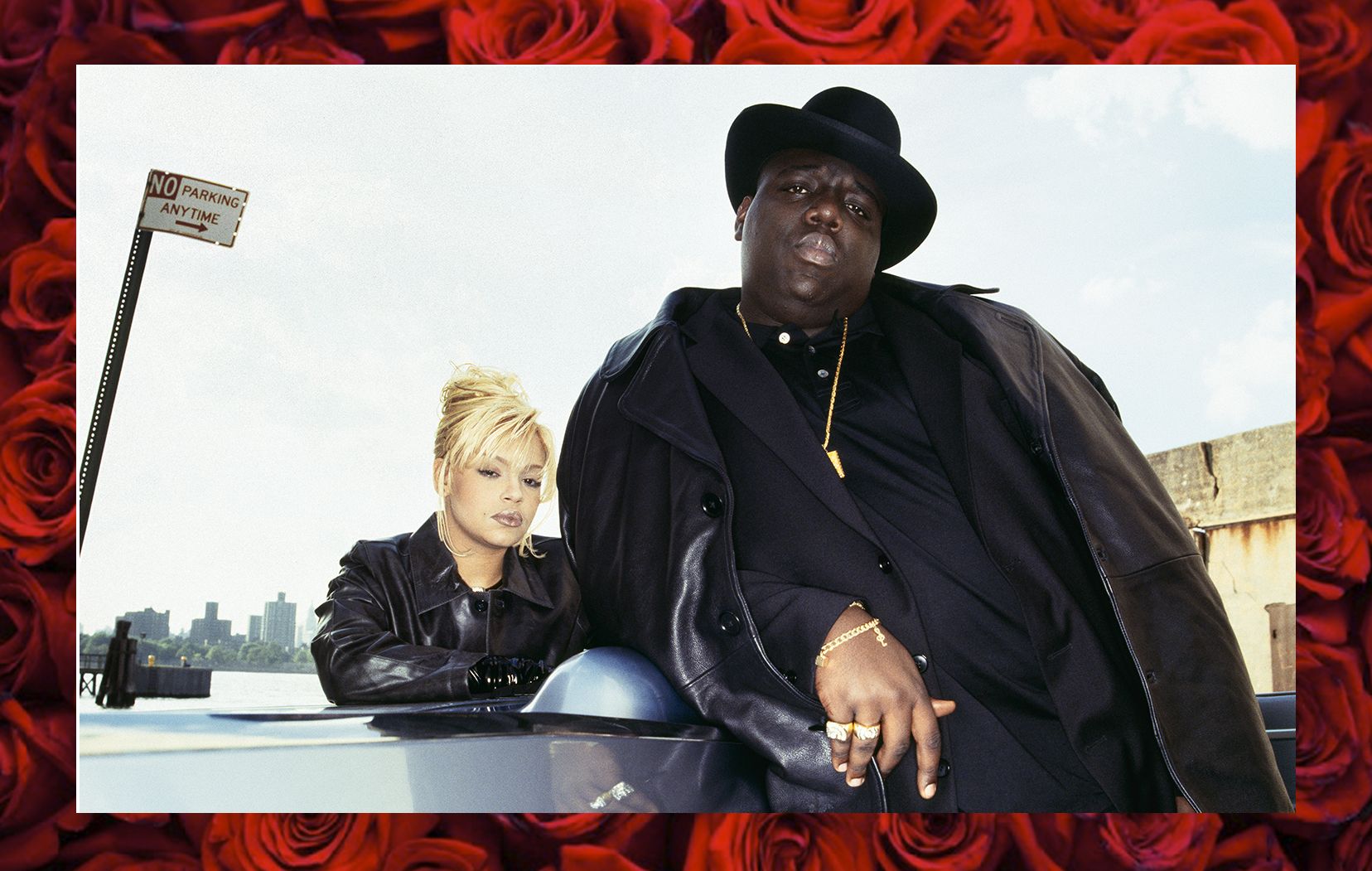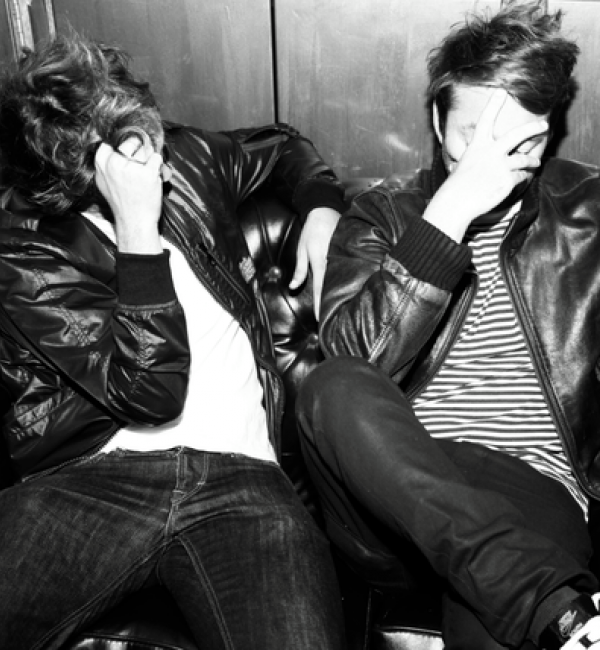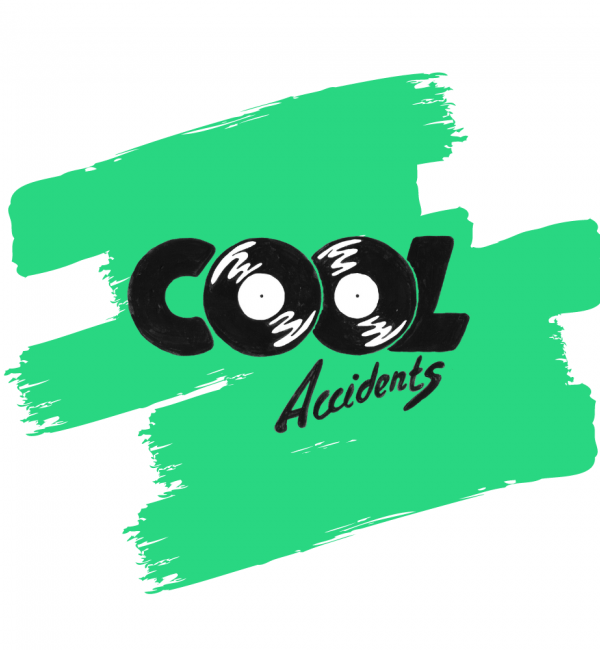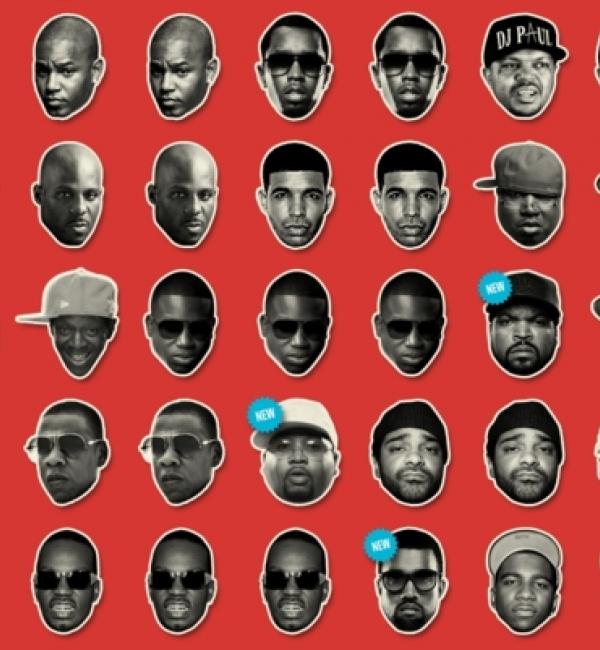
Number one with a bullet.
With a new Faith Evans duets set soon to drop, we look at the immortal appeal of the late, great Notorious B.I.G.
March 9 2017 marks the 20th anniversary of the death of the artist known as Biggie Smalls, a.k.a. Notorious B.I.G. — the rap game’s G.O.A.T., according to hip-hop connoisseurs at The Source, Billboard and Rolling Stone, which dubbed Big Poppa the “greatest rapper that ever lived”.
Born to Jamaican parents in Brooklyn in 1972, christened Christopher Wallace, Biggie grew up in the underprivileged Clinton Hill neighbourhood of Bedford-Stuyvesant. Despite doing well at school (with English unsurprisingly a strength), the tall, hefty youth began dealing drugs around the age of 12 to help support his mother — a preschool teacher who also worked nights to make ends meet, leaving Biggie with plenty of unsupervised time to get his hustle on.
Dropping out of school at 17 to focus full-time on crack rock entrepreneurialism, Biggie had several run-ins with the law, was sentenced to probation on a weapons charge in 1989 and in 1991, did nine months in prison for dealing. That same year, he got his break in the rap game.

As Biggie described it to an interviewer in 1995, he and future Junior MAFIA collaborator Damien ‘D-Roc’ Butler “used to be hustlin’ on Bedford (Avenue) and Quincy (Street in Brooklyn), and (D-Roc) introduced me to this kid named 50 (DJ Hitman 50 Grand). We used to get drunk and high and go in his basement, and I used to just rap over instrumental beats. 50 used to tape everything, and after he got maybe 20 or 30 minutes’ worth of raps from me, he took it to Big Daddy Kane’s DJ, Mister Cee.” Impressed, Mister Cee brought the demo to the attention of Matty C, an editor at The Source magazine, who gave Biggie his first write-up — and a leg-up, making the rapper known to the man who’d be instrumental in his career, signing him and overseeing the hook-laden production of his records, Sean ‘Puff Daddy’ / ‘P.Diddy’ Combs.
“Matty saw Puff at a club,” Biggie explained. “Puff was like ‘Yo, I’m looking for some hardcore artists for Uptown Records’ — that’s when Puff was vice-president at Uptown, he’s at the time doing the Heavy (D) shit, the Mary (J Blige) shit, Jodeci, but he wanted to do some hard shit, some street shit, so Matt let him hear my shit, he liked it, wanted to meet up with me. We met up, I kicked a little rhyme for the n***a and it was on from there.” When Combs left Uptown to set up his own label, Bad Boy, Biggie followed. “Me and Puff is real tight,” he said in ’95. “He’s my boy, he look out for me — know what I’m sayin’? He took me off the streets. Gave a n***a a chance. I got love for him.”
In 1994, within days of marrying fellow Bad Boy artist Faith Evans (within days of meeting her), Biggie dropped his seminal debut LP Ready To Die through Combs’s label. Lead single “Juicy” was an instant hit, while second and third singles “Big Poppa” and “One More Chance” sold more than a million copies each. Critics lauded Biggie’s “straightforward” wordsmithery and the clarity of his storytelling, which the rapper described as pure autobiography. Having quit slanging crack in 1993, the product he was now pushing was his own life. “My music ain’t really got messages for somebody to listen to and like learn from, it’s just basically an autobiography of myself, you know what I’m sayin’? You can take it any way you want to,” he said. “You can take it as, you wanna be like me, or you can take it as you wanna stay away from what I was doing. I’m me, I can’t really be that role model type of n***a — I leave that to the parents and the teachers and shit. I’m just making music.”

And making money. Biggie had become a father in 1993, when his previous girlfriend bore him a daughter, and he and wife Faith Evans had a son in 1996. Providing for his family was priority number one for the rapper, determined to give his children the financial stability his own upbringing lacked. “If you got kids, that’s all you really got,” he said. “If you can’t make sure that person is alright, you can’t take care of yours, you don’t need to be on this earth, know what I’m sayin’?” Though his music is considered among the greatest hip-hop ever produced, Biggie wasn’t focused on making art, but making bank. “My responsibility in a rap, to me, in my eyes,” he said, “is just to keep making hits, keep selling records so my family can be straight.”
Biggie kept on clocking dollars, churning out chart-toppers, augmenting solo work with collaborations with his group Junior MAFIA and a clutch of R&B artists. But while the tills kept ringing, the caps kept poppin’ — a violent feud had brewed between east and west coast rappers, not least Biggie and his former friend Tupac Shakur, and their respective labels, Combs’s NY-based Bad Boy and Suge Knight’s LA-headquartered Death Row. When Tupac was slain in a Las Vegas drive-by in September 1996, rumours swirled that Combs and Biggie were behind the fatal shooting (unsolved to this day).
The following March, while departing a party in Los Angeles, the SUV Biggie was riding in was fired upon by an unidentified gunman, four bullets striking the rapper, who died 30 minutes later while undergoing emergency surgery for wounds to the colon, lung, liver and heart. Biggie’s second and final solo album, with the eerily prescient title Life After Death, was released a fortnight after his killing, immediately shooting to the top of the Billboard charts. It contained the smash hits “Hypnotize”, “Mo Money Mo Problems” and “Sky’s The Limit” — as well as a fistful of ‘diss raps’ aimed at Biggie’s nemeses. The rapper, who’d said “if a n***a was to disrespect me and I had a gat, I’ll go handle my business,” continued to take shots from beyond the grave.

Biggie lives on in a number of posthumous releases, the latest and most ambitious of which will drop on May 19, two days before the rapper’s birthday. The King & I is a collection of duets with Faith Evans, which she conceived with the thinking that, to honour Biggie’s legacy, “one day it would be really dope if I could do something similar to Natalie and Nat King Cole’s Unforgettable.” The album includes productions from the likes of DJ Premier, Just Blaze, Stevie J and Salaam Remi, and vocal contributions from Lil’ Cease, 112, Snoop Dogg, Busta Rhymes, Jadakiss, and the woman who shared a place with Faith in Biggie’s affections, Lil’ Kim.
Even 20 years after his passing, Notorious B.I.G. just keeps on providing and hypnotising.
By Christian Barker
Pre-order The King And I here.




